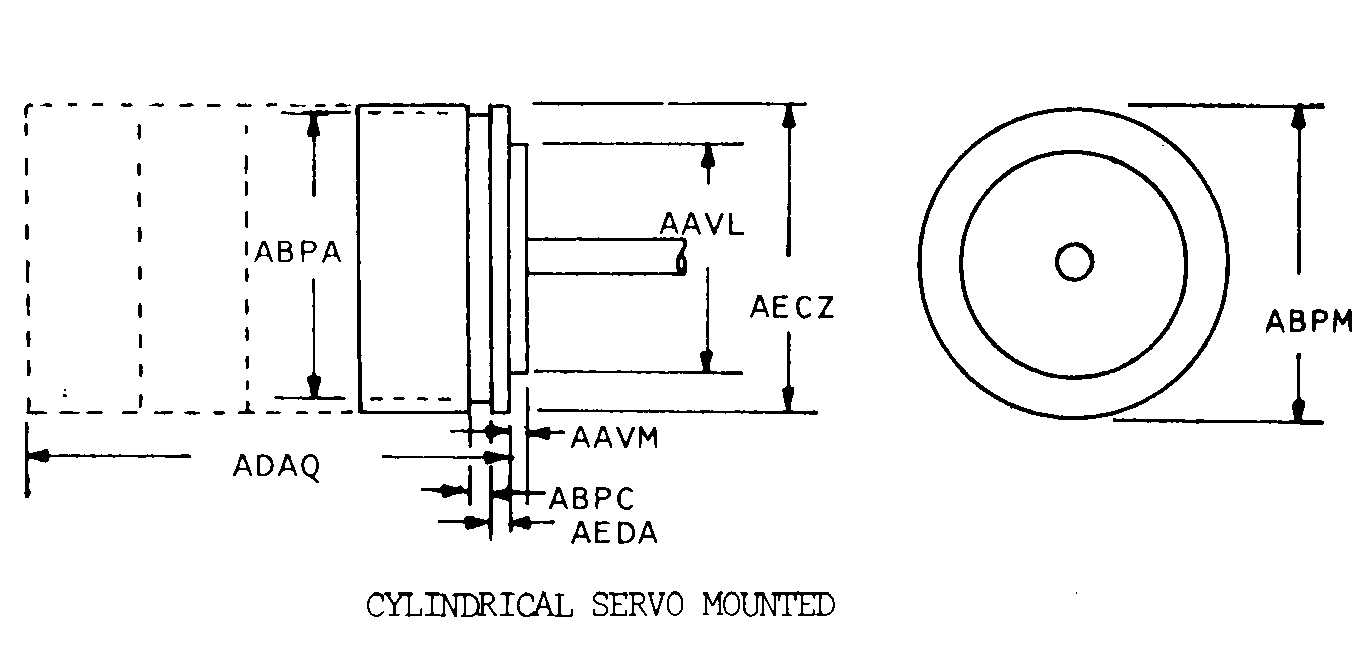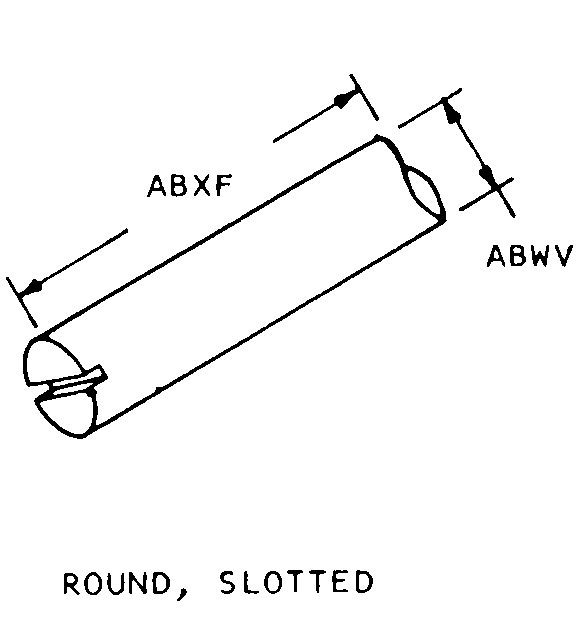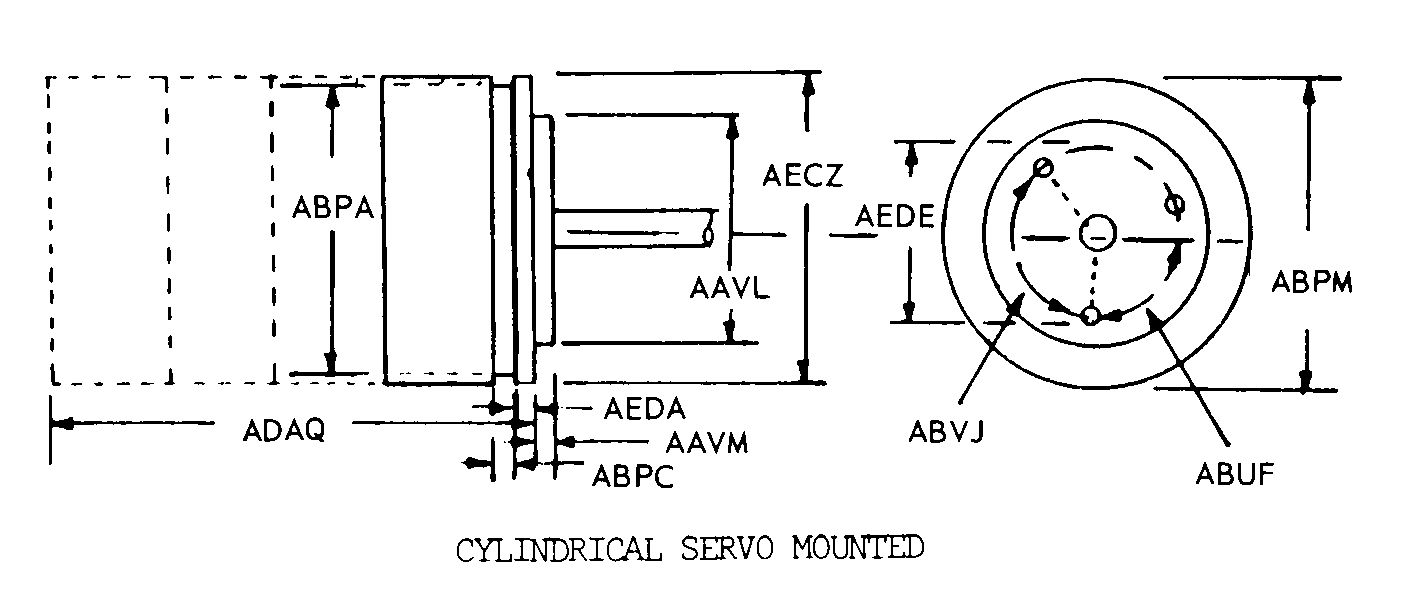5905011886823
Price Quote Get an up to date pricing and availability quote for this product. Order online or over the phone.
Quality Commitment
Serving our customers with quality and safety first.
- AS9120 Certified
- Audited supply chain
- ITAR Registered
- DDTC Registered
- HAZMAT Certified
- Customer service objectives
- Every product 100% inspected

5905-01-188-6823 Specification Set by the OEM (see RNCC code 3)
1
cylindrical servo mounted
not established
0.3750in.
0.0620in.
2.056in. ⁓2-1/16"
0.400in.
0.0620in.
0.500 in.
0.0935in.
0.625in.
1.431in.
0.672in. ⁓43/64"
0.5000in.
0.0620 in.
round, slotted
ball
single shaft
0.50 INCH-Ounces
0.30 INCH-Ounces
0.005in.
0.003in.
0.003in.
0.002in.
0.002in.
moderately rugged
longitudinally positioned on the circumference
clamp ring
10.0 percent, rated amperes c and better flooring
5400.0
-0.50/+0.50 single section
125.0 single section
-50.0/+50.0 single section
1.0 7th secondary quality
single section independent linearity
-5.0/+5.0 single section
clutch
7 oclock all primaries
70.0 single section
terminal surfaces gold
gold
96214-805179 drawing (this is the basic governing drawing, such as a contractor drawing, original equipment manufacturer drawing, etc.; excludes any specification, standard or other document that may be referenced in a basic governing drawing)
1 tab, solder lug and 2 turret
Cross Reference Parts Part numbers that meet the specification outlined on this page and set by the OEM
Identification Item Identification Guide (IIG) and Item Name Code (INC)



Definition Definition of approved item name (AIN): "RESISTOR,VARIABLE,HYBRID"
A resistor in which a sliding or rolling contact moves over an exposed area of the resistive element. Uniform contact pressure on the resistance element is maintained by positive pressure to permit smooth electrical and mechanical control of the resistor over the entire resistance range. The resistive element is constructed of a combination of two materials usually consisting of a wirewound element with a coating of conductive plastic applied over the resistance wire where the slider makes contact. May be constructed of a single or multiturns of wire supported on an insulating structure on which the wiper contacts the coated wire continuously in the direction of wiper travel. The opposition to the flow of current is an inherent property of the wire used and is manifested in the heat dissipated in the resistor itself. For items having manually positioned taps designed to be set and fixed prior to use, see resistor, adjustable. For items with step by step variation, see rheostat; and resistor, step by step. For tandem-mounted items designed to function together as an attenuator (and rated accordingly), see attenuator, variable. Excludes other resistor (1), variable, (as modified).
Packaging & Dimensions Packaging instructions, special markings, and approx. weight/dims
Packing shall be accomplished in accordance with table c.ii for the packing level specified. closure, sealing and reinforcement shall be in accordance with applicable specification for shipping container.
Packing shall be accomplished in accordance with table c.ii for the packing level specified. closure, sealing and reinforcement shall be in accordance with the appropriate shipping container specification.
Options can be exercised as to specific method of preservation or dod approved packaging materials to be used. however, basic preservation method shall be retained, supplemental data shall be complied with, and unit package dimensions shall not be increased by more than one inch. equal or better protection shall be given the item and there shall be no increase in the package cost.
Special requirements.
Packaging Codes
OPI: Optional Procedure Indicator Code. A one position alpha code that indicates the allowable deviations from the prescribed requirements.
SPI No.: Special packaging instructions number.
LVL A/B/C: Indicates the type of shipping container required for level A, B, or C maximum packing protection.
SPC Mkg: A two position code that identifies the special markings applied to the container, which is part of the total pack to protect the contained item during preservation, packing, storage, transit and removal from the pack.
5905-01-188-6823 Material Hazmat, Precious Metals, Criticality, Enviroment, and ESD
Indicates there is no data in the hmirs and the nsn is in a fsc not generally suspected of containing hazardous materials.
Item contains gold.
The item does not have a nuclear hardened feature or any other critical feature such as tolerance, fit restriction or application.
Identification Codes
HMIC: Hazardous Material Indicator Code. A one position code that identifies a hazardous item.
PMIC: Precious Metal Indicator Code. A one position code which identifies items that have precious metals as part of their content. precious metals are those metals generally considered to be uncommon, highly valuable, and relatively superior in certain properties such as resistance to corrosion and electrical conductivity.
ESD: Electrostatic Discharge. Indicates if an item is susceptible to electrostatic discharge or electromagnetic interference damage. electrostatic discharge damage occurs when an accumulation of static electricity generated by the relative motion or separation of materials is released to another item by direct contact. electromagnetic interference damage occurs when an item comes into proximity with an electrostatic or magnetic field.
ENAC: Enviromental Attribute Code. Identifies items with environmentally preferred characteristics.
CRITL: Criticality Indicator Code. Indicates an item is technically critical by tolerance, fit, application, nuclear hardness properties, or other characteristics.






